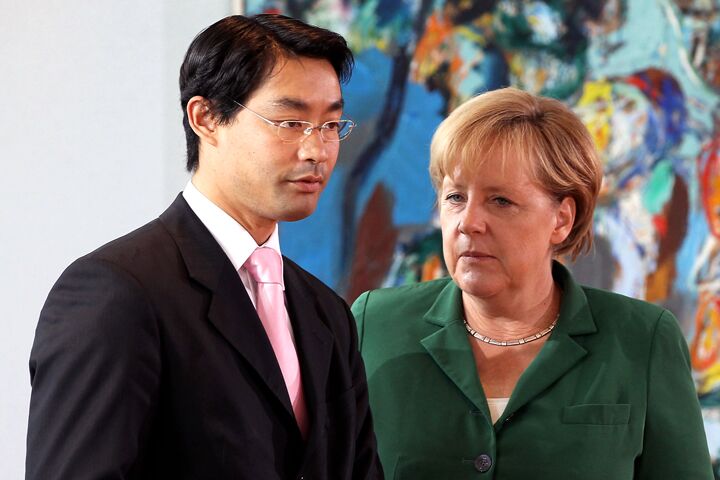
German Media: ‘Who Has Courage in German Politics?’
Angela Merkel, chancellor of Germany, has not given any speeches about the crisis in Libya. Neither has she admitted that the recent breach at Japan’s Fukushima nuclear power plant was unsettling to Germans. In recent months, she actually has not offered much firm commentary on any of the scores of troubling developments playing out on the world stage.
And the German press is taking note.
On June 2, Spiegel Online published an article alerting its readers to the “faintheartedness of Germany’s politicians.” Here is an excerpt:
Merkel, for her part, lacks the confidence to take decisive action. She has been accused of timidity for years, but at least she had convictions in the past. Today she no longer says what she believes ….
The writer, Klaus Brinkbäumer, does not limit his criticism to Germany’s chancellor, but condemns all the nation’s current politicians. His article continues (emphasis ours throughout):
Who has a clear vision anymore—who has courage in German politics?
German President Christian Wulff is cautious. Wulff doesn’t have the nerve to think a thought, give a speech or make a gesture that’s innovative or uncalculated. Perhaps he feels the burden of his office, or possibly he fears criticism. It’s hard to tell, because he says so little. Philipp Rösler, the new vice chancellor, … is presumably inhibited by a fear of his predecessor, Guido Westerwelle. … Contours are becoming blurred, everything that is distinctive has been smoothed over …. [A]n inconsequential, cookie-cutter mentality is fatal to the essence of what it means to be political. Courage signifies a fondness for thought and discovery, as well as the strength to be able to take as much as one can give. All of this is essential for good policy …. German politicians sound sterile, their words clichéd.
And Brinkbäumer is hardly the only German dissatisfied with his country’s current leadership.
Germany’s rising dissatisfaction with its leaders is something the Trumpet has long predicted. At its core, Brinkbäumer’s commentary represents the pleas of Germans for a strong German leader—a leader free of the fear, concern and lack of confidence that encumbers Merkel and most of Germany’s other politicians today.
For more than five decades, the late Herbert W. Armstrong, founder of the Plain Truth magazine, predicted that such a leader would take the reins of Germany and lead not only that nation but an entire united Europe. Since the Trumpet’s inception back in 1990, editor in chief Gerald Flurry has continued with the same predictions. “If you understand German history, you know that the Germans are decisive when facing serious crises. History shows that they have repeatedly turned to a very strong leader to deal with a potential or real crisis,” he wrote last July.
In his Spiegel Online article, Brinkbäumer asks:
What sort of a country would Germany be if we retained our well-functioning system, but also had thinking and acting, bold and clever politicians? Have they ever been that way? Or is imperfect memory glorifying something which never existed?
He goes on to mention Franz-Josef Strauss, Willy Brandt, Herbert Wehner, Joschka Fischer, and Gerhard Schröder, saying that modern circumstances suppress such personalities.
Mr. Flurry peers further back into history in his booklet Nahum—an End-Time Prophecy for Germany and explains the type of leader that the world should expect: “Soon, Germany will be ruled by a man more cunning and deceitful than Adolf Hitler.”
